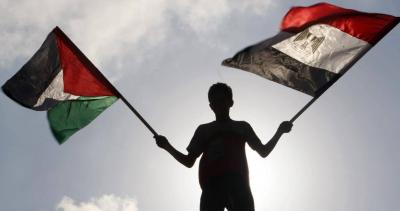Days in years not covered by the dust of unrelenting time. In the last week of May 1967, our minds as the Arab youth of that time were consumed by our fervent emotions. The late Egyptian president Gamal Abdel Nasser announced his decision to close the Straits of Tiran to Israeli navigation, confidently stating: "If the Jews want war, we welcome it." Following this, the great historical commentator on Voice of the Arabs began to proclaim to the Arabs the imminent liberation of Palestine and the invasion of Tel Aviv. The ear became the sole sense that overshadowed all others, confining minds in "the terrible silence," as the great poet Kamel el-Shennawi said. However, I doubt that anyone from the youthful participants of those fiery days made their ears aware of the title of that poem, "Do Not Lie."
At dawn on June 5, the alarm sounded in the Voice of the Arabs from Cairo, announcing to the Arabs from the roaring ocean to the tumultuous Gulf the advance of armed forces towards Palestinian lands to liberate them from Zionist gangs. The Voice of the Arabs became a military operations center, led by General Ahmed Said, accompanied by supporting forces under the command of poet-general Salah Jahin and the singing general Abdel Halim Hafez, mobilizing troops, "Welcome to battles." On June 9, we received the definitive news from the same studio: the resignation of President Gamal Abdel Nasser and the announcement of the defeat. Recurrent news that never faded, crowned by the announcement of Field Marshal Abdel Hakim Amer's suicide. Palestine continued to be present as a news item in events while diminishing as a moving issue towards a solution for decades.
Is history repeating itself these days? The urgent news awaited by everyone is for it to appear on their screens: an Iranian attack on Israel, or a broad preemptive Israeli attack on Iran. The ongoing Israeli assault on Gaza has settled in global news bulletins like a daily counter reporting statistics of Palestinian civilian casualties, now accompanying sports news, stock markets, and electoral conflicts. In recent years, Israel has enacted a foundational law affirming that Israel is a Jewish state, belonging solely to the Jews, and recently rejected the establishment of a Palestinian state. Last week, Israeli Security Minister Ben Gvir demanded the annexation of the West Bank to Israel. All of this news is fueled by new reports, in written, audio, and visual formats.
Those speaking today about the anticipated Iranian military retaliation for the assassination of Ismail Haniya, in the heart of its power, must consider the sacred word "anticipated." The marathon negotiations involving changing parties over the cessation of Israeli aggression against the people of Gaza have become an added news item to the already saturated bulletins. The United States, which has amassed its latest aircraft carriers and nuclear-powered submarines, providing weapons and billions to Israel while declaring its unwavering commitment to Israel's existence and security, has the audacity to play the role of one who sprinkles mirage on the fires of torment.
The two-state solution! The news stuffed into political statements as the final prescription for the Palestinian issue means nothing but a bold mockery of the dreamers' minds, much like in the era of the pummeling national anthems and speeches. News moves and turns with the rotation of the Earth, while the cause fails to flourish or to be nourished by the fleeting days. The Israelis push extermination forces throughout Gaza, settlers rush in hundreds of thousands carrying their weapons, seizing homes, farms, and pastures, while planes and rockets bombard camps, demolishing homes on the heads of their inhabitants. The arrests and torture of Palestinian youth have become daily entertainment for Israeli soldiers.
Certainly, many will see in what I wrote groans of despair, frustration, and hopelessness. Yet the journey of the Palestinian issue, since it stirred from London in the Balfour Declaration, while Arabs raised their ambitions without dissecting the balance of power they have or what the other side possesses, shows Arabs as fragmented groups after the tearing of the patched Ottoman cloak. In the river of global political evolution, new crops have sprouted, drowning out ancient entities. The Jews arriving from Europe brought with them maps of changing times. The Balfour Declaration promised them a homeland but did not promise them a state in Palestine. What is currently rehashed in the news about a Palestinian state solution is merely a verbal political contest that will not yield a solution. Jewish extremism is growing stronger, and we may witness in the upcoming years figures like Ben Gvir or Smotrich rise to the head of the Israeli government. In the early 1970s, most Israelis described Menachem Begin as a crazy criminal. Yet he became the Israeli prime minister who won the Nobel Peace Prize. As if that is just news, vibrating in the ether.




